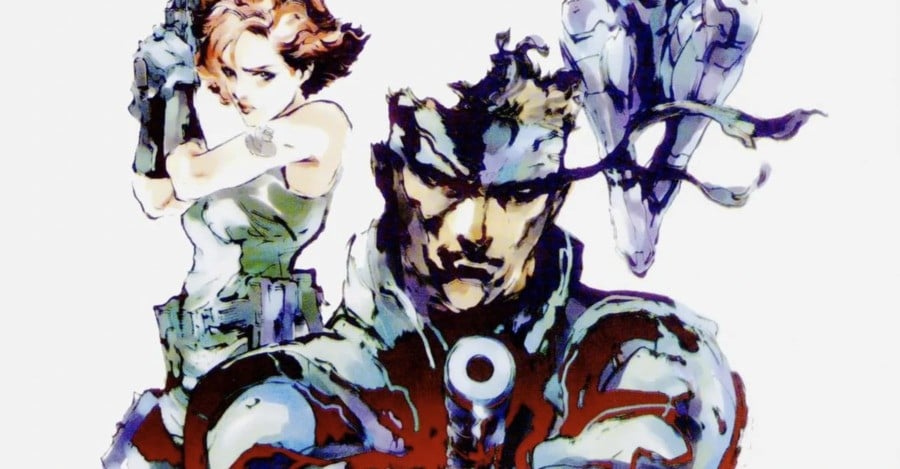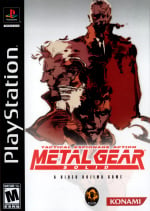
If you've ever played Metal Gear Solid, the track "The Best Is Yet To Come" will likely be familiar to you.
The haunting theme, performed in Gaelic by Irish singer Aoife Ní Fhearraigh, plays at the end of the sold Snake's adventure, over staff credits and b-roll of the Alaskan wilderness, and served as a particularly moving way to cap off the experience. It links up perfectly with both the Meryl and Otacon endings of the game, acting as a meditation on existence, fate, free will, and the future, and was composed by the musician and producer Rika Muranaka. Her brief was to try and find something different, something Kojima had never heard before, so she set about suggesting potential ideas for musical genres.
Speaking in 2021, Muranaka told us: "We were trying something new and different. Hideo didn’t want any music that he knows. Or that he'd heard. He didn’t want a language that he could recognize. So that was a challenge for me, so I said what about the Gaelic music? Nobody could recognize that. French, he didn’t want to have French. He didn’t want to have Spanish. He didn’t want to have English, so I said, ‘What about Gaelic?’ And he said, ‘What’s Gaelic?’ And that’s how I started doing Gaelic music. 'The Best Is Yet To Come' is still people’s favourite, you know. I’m actually proud of that."
The song was recorded in Beechpark Studio in Rathcoole, Ireland, just outside of Dublin. As the recording engineer Philip Begley seems to remember today, the studio location was picked as he had worked with several Japanese artists in the past including Mimori Yusa and Hitonari “jinsei” Tsuji. There wasn't much budget but Muranaka was traveling at the time and was able to combine the costs of recording with other projects she was working on.
She recalled, "I flew to Ireland. It’s only an hour away from London, but it’s so different from London. You could hear the chickens and the goats and the cows. Everything. It was crazy. It was peaceful in the day, so it wasn't that bad. But at night, you get all kinds of animals coming out so you could hear a lot of animals howling and barking. It was kind of crazy."
Together Begley and Muranaka were responsible for sourcing the musicians, many of whom had played together before, both live and in recording sessions. This included Aoife Ní Fhearraigh as lead vocalist (contacted via her agent), Declan Masterson on low pipe and bouzouki, John Fitzpatrick on fiddle, James Blennerhassett on double bass, and Noel Bridgeman on percussion. Elsewhere, on the track, David Downes also provided some additional choral arrangements, with a young World of Warcraft composer Eimear Noone happening to be among the chorus vocalists selected for the track.
Blennerhassett remembers, "Beechpark was a really busy studio back then but mainly for Country music. We did most of Daniel O'Donnell's albums there. Loads of space and good isolation. I worked a lot with Philip Begley back then and also I played in Mary Black's band with Noel Bridgeman.
"I knew the others but wouldn't have done much work with them at that time. I'm not a gamer myself but people always say to me that they saw my name in the credits. My son plays it. I did a course in music composition for games during lockdown in Pulse College which was very interesting..apart from Unity..yeugh, but its not really my bag."
Of course, Muranaka didn't know any Gaelic, so in order to translate the lyrics they brought in the Irish writer and broadcaster Bláthnaid Ní Chofaigh who also remained in the studio on the day in case any words needed to be changed at the last moment.
As the title suggests, the theme is consolatory in nature, with the lead vocal reassuring a silent third party that life can be beautiful and that they can make a better future for themselves. Given the protagonist Solid Snake's predicament at the end of the game — infected with FOXDIE and given an indeterminate amount of time to live — it makes for a perfect bookend to the character's journey in that game and one that fans won't soon forget. It even made a memorable reappearance in Metal Gear Solid 4: Guns of the Patriots.
Unsurprisingly, Muranaka is proud of what they were able to achieve, given the uncertainty involved. She states, "Hideo had no idea and I had no idea if I could do it right, but I took a chance and it came out really good."


